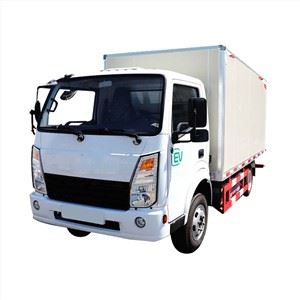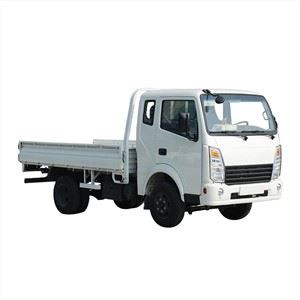Complete Guide to Buying a Tipper Truck: Essential Insights for Smart Purchases

In the heavy-duty vehicle market, tipper trucks play a crucial role in construction, transportation, and many other industries. Whether you’re a contractor, a construction company owner, or simply someone in need of reliable transportation for materials, understanding how to buy a tipper truck is essential. This guide provides comprehensive insights into purchasing a tipper truck, covering everything from choosing the right type to financing options and maintenance tips.
Understanding Tipper Trucks
Tipper trucks, also known as dump trucks, are designed to transport loose materials such as sand, gravel, dirt, and debris. They feature a hydraulically operated open-box bed that can be tilted to unload contents quickly.
Types of Tipper Trucks
There are several types of tipper trucks available, each suited for different applications:
- Standard Tipper Trucks: Ideal for general construction work.
- Bulldozer Tipper Trucks: Have reinforced designs for heavy-duty use.
- Side Tipper Trucks: Used for unloading materials from the side, suitable for bulk products.
- Mini Tipper Trucks: Compact in size, ideal for urban environments or small jobs.
Key Features to Look for in Tipper Trucks
| Feature | Description |
|---|---|
| Payload Capacity | The maximum weight the truck can carry, crucial for efficiency. |
| Engine Power | Measured in horsepower, affects performance and fuel efficiency. |
| Bed Material | Common materials include steel and aluminum; choose based on durability and weight. |
| Hydraulic System | Review the efficiency and reliability of the hydraulic system for unloading. |
| Cabin Comfort | Good ergonomic design and climate control enhances driver productivity. |
Evaluating Your Needs
Before making a purchase, it’s important to evaluate your requirements:
1. Determine Your Budget
Your budget will significantly influence your buying options. Include not only the purchase price but also insurance, registration, maintenance, and fuel costs.
2. Assess Intended Use
The type of work you plan to do will determine the kind of tipper truck you need. Consider the size of loads, frequency of use, and types of materials you’re transporting.
3. Location Considerations
Consider the terrains you often work in. If you frequently operate on rough, off-road conditions, a truck with a robust suspension system may be necessary.
Researching Suppliers and Models
Finding Reputable Dealers
Conduct online research to find reputable dealerships. Check customer reviews and ratings and inquire about warranties and after-sales service.
New vs. Used Tipper Trucks
Whether to buy new or used largely depends on your budget and needs. New trucks come with warranties and are equipped with the latest technology, while used trucks can be significantly cheaper. Here’s a brief comparison:
| Criterion | New Tipper Truck | Used Tipper Truck |
|---|---|---|
| Cost | Higher | Lower |
| Maintenance | Lower initially | Higher due to potential wear |
| Warranty | Usually included | Limited or none |
| Technology | Latest features | Older technology |
Financing Your Tipper Truck
Acquiring a tipper truck often requires considerable investment. Here are a few financing options:
1. Bank Loans
Traditional bank loans can be a good option. Start by checking your credit score and ensure you have a solid business plan to present to the lender.
2. Equipment Financing
Specialized lenders offer equipment financing, allowing you to pay off the truck over time while using it for business operations.
3. Leasing
If your budget is tight, consider leasing a truck. This option typically requires lower upfront costs and offers flexibility, making it easier to upgrade when needed.
Legal Requirements and Regulations
Every country or region has specific legal requirements regarding vehicle registration, insurance, and compliance with safety regulations. Make sure to:
1. Register Your Truck
Ensure your tipper truck is registered with the relevant authorities to avoid fines and penalties.
2. Get Insurance
Insurance is crucial for protecting your investment and fulfilling legal obligations. Research various insurance providers to find one with suitable coverage for your needs.
3. Compliance Checks
Ensure your truck complies with safety and environmental regulations. Regular inspections may be required to maintain legal status.
Maintenance and Care for Your Tipper Truck
Maintaining your tipper truck ensures its longevity and performance. Here are essential maintenance tips:

1. Routine Inspections
Conduct daily checks on critical components like brakes, tires, and lights.

2. Oil Changes
Regularly change the oil according to manufacturer guidelines to keep the engine running smoothly.
3. Tire Care
Check tire pressure frequently and inspect for wear and tear. Rotate tires as needed to ensure even wear.
4. Hydraulics Maintenance
Inspect hydraulic systems routinely for leaks or malfunctions, as these are crucial for the truck’s dumping feature.
Example Scenarios for Buying a Tipper Truck
Let’s consider a few scenarios to help you understand the decision-making process:
Scenario 1: Construction Company Expand
A construction company is looking to expand its fleet. The owner decides to purchase new tipper trucks for optimal performance on large projects. After researching suppliers, they secure financing through equipment loans and ensure compliance with local regulations.
Scenario 2: Landscaping Business Growth
A landscaping service expands and requires a reliable way to transport materials. The owner investigates both new and used options, ultimately deciding on a used mini tipper truck after evaluating budget constraints. They secure financing through a lease and prioritize maintenance to prolong the vehicle’s life.
Frequently Asked Questions

1. What is a tipper truck used for?
A tipper truck is primarily used for transporting loose materials like gravel, sand, or soil and unloading efficiently using its hydraulically operated bed.
2. How much does a tipper truck cost?
The cost can vary widely based on factors like size, model, and condition. New trucks typically range from $30,000 to $150,000, while used trucks may cost significantly less depending on their age and condition.
3. What maintenance does a tipper truck require?
Regular maintenance includes oil changes, hydraulic fluid checks, tire inspections, and general upkeep of the engine and transmission systems to ensure optimal performance.
4. Can I finance a used tipper truck?
Yes, many financial institutions offer equipment financing options specifically for used machinery, including tipper trucks. Ensure you compare loan terms and interest rates to get the best deal.
5. What factors should I consider when buying a used tipper truck?
When buying a used tipper truck, consider factors like the truck’s condition, service history, mileage, payload capacity, and any existing warranties.
6. Are there eco-friendly options for tipper trucks?
Yes, some manufacturers are producing eco-friendly tipper trucks that comply with emissions regulations and employ alternative fuel sources. It’s worth exploring these options if sustainability is a priority for your business.
